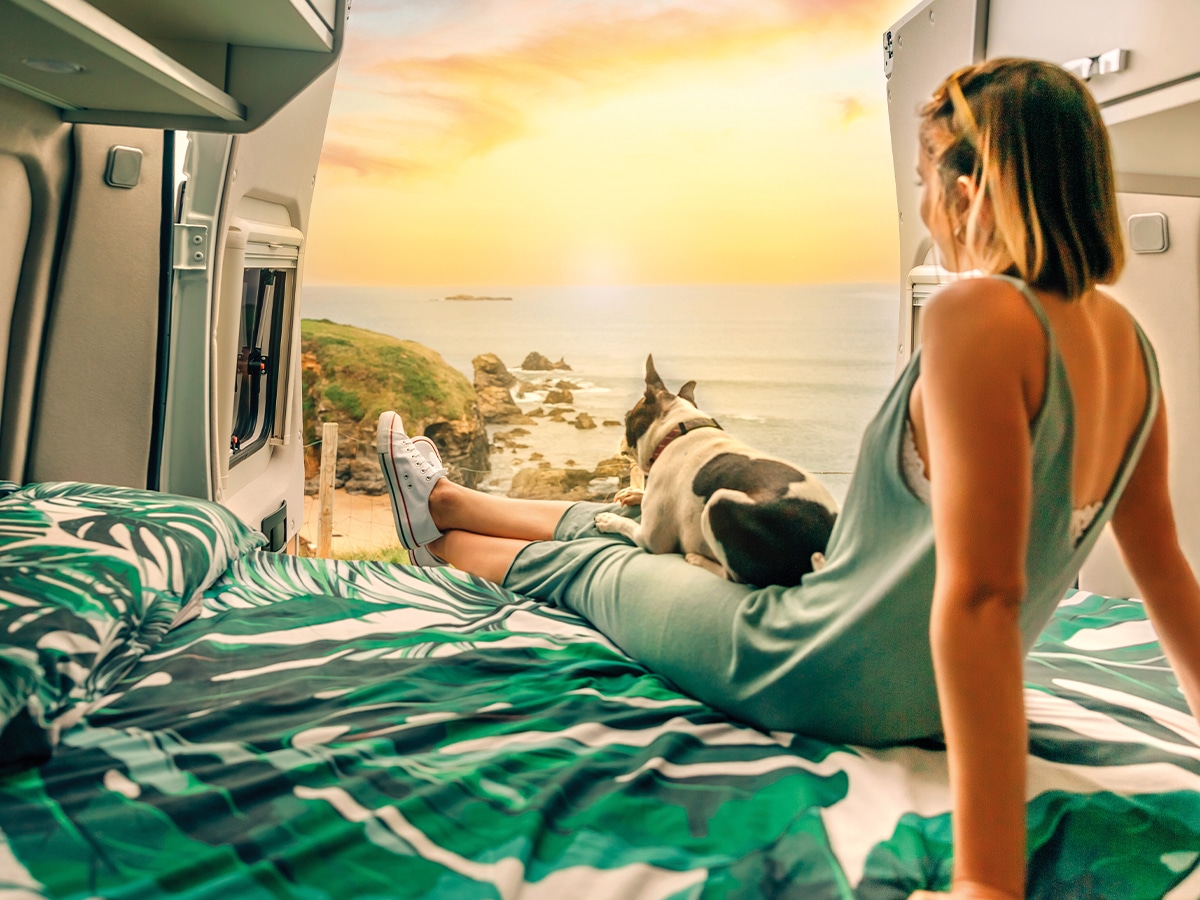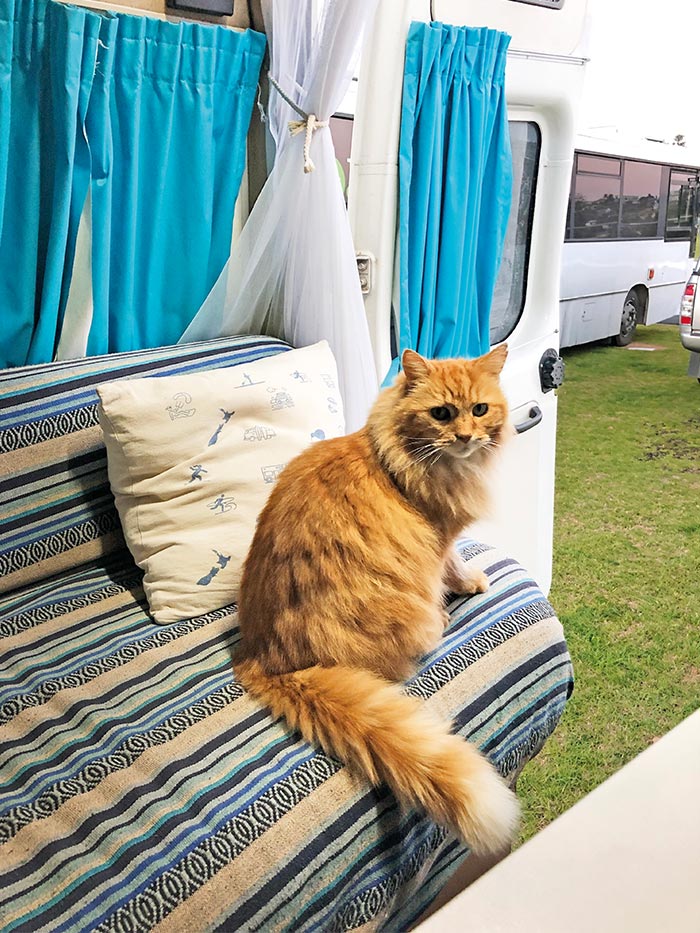Pets can make amazing travel buddies. But taking your furry friends on the road with you also comes with challenges, says Lisa Jansen.
Pets are part of the family. As such, many are reluctant to leave them behind when hitting the road. Luckily, RVing is one of the easier ways to travel with pets. Since you have your own mobile home, you don’t have to worry about finding pet-friendly hotels, and you can provide a somewhat stable environment for your furry friends to feel comfortable and at home. However, RVing with pets is not without its challenges. As a pet parent, it’s a good idea to familiarise yourself with the rules, etiquette and limitations before you hit the road to ensure it’s an enjoyable experience for you and your furry friends.
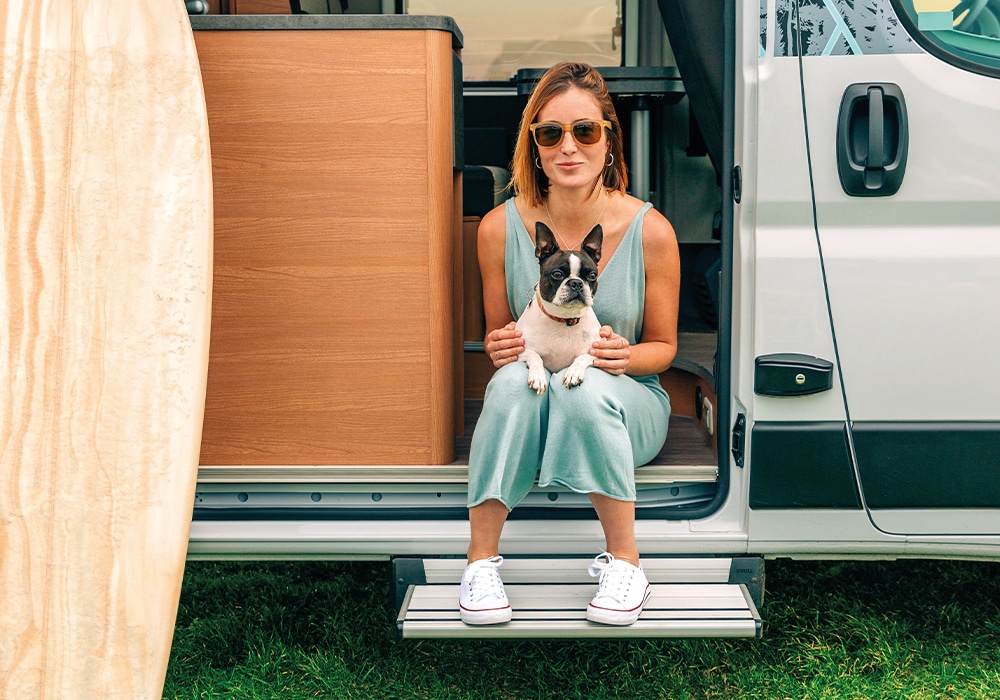
Ease your pet into it
While some pets take to travelling in a motorhome or caravan like fish to water, this is not the case for all of them. Many pet owners report that it took their furbabies a while to get used to it – and some never do.
It’s best to start slow. Start by spending some time in your RV with your pet while it’s parked up to allow them to get comfortable. After that, go for a short drive to see how they respond. Some animals can get car sick when travelling in a motorhome, even if they’ve always been fine in a regular car. Finding the best place for your pet in the RV can help with this. Usually, further to the front is better. It might also help if your pet can look out a window, and opening one for fresh air can help, too. Some pets seem to prefer travelling in a crate, carrier or cage, while others are happier without such confinement.
If your pet does not like being in a crate, secure them with a harness or restraint. If you ever are in an accident, an unrestrained pet could get seriously hurt, and hurt you and others. You wouldn’t drive around with kids roaming free in the RV or car, so you shouldn’t with pets, either.
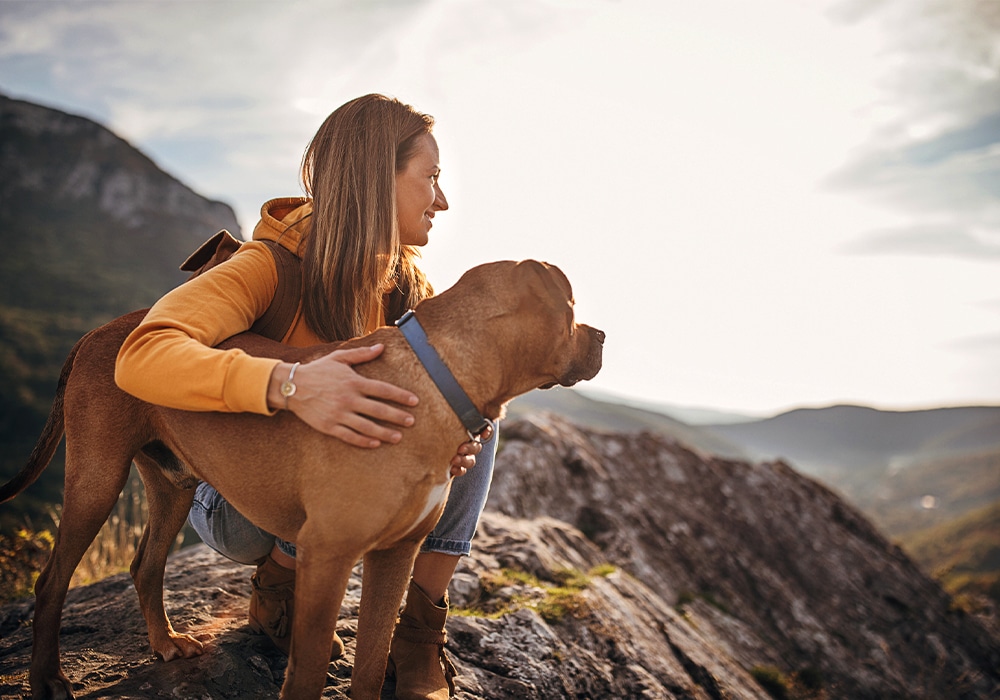
There are a number of accessories available for ensuring your dog or cat (or parrot, rabbit or anything else you’re travelling with!) is safe; if your dog is unsettled, or jumps into the front seat with you, dog seat belts are your friend. They are designed to click into the seat belt socket of your vehicle, and come in a range of sizes and designs. Note these products are best used with a harness, not attached to a collar.
If your pet still struggles with getting comfortable in the moving RV even after trying different spots and options of restraint, you might want to talk to your vet about medication that could help. Once your pet seems comfortable driving around in your RV, it’s time for your first trip. Start with a short one, and don’t go far from home to ease into it. Once you’re confident that your pet is a happy traveller, you can extend the duration of your journeys.
Unfortunately, despite all the best efforts, some pets never get used to RV travel. This is something to consider before getting a pet or an RV (whichever comes second). Simply put, you need a plan B in case your pet turns out to be unsuited to life on the road. Luckily, there are other options, such as kennels or finding a housesitter to look after your pets while you enjoy the RV life.
Know where you can and can’t take your pets
While many people are animal lovers, pets aren’t welcome everywhere. In fact, New Zealand isn’t particularly pet-friendly compared to other countries. Pets are not allowed in any of the 13 national parks and most nature reserves and wildlife sanctuaries – not even in your car or RV. There are also many beaches where pets are not allowed at all, or only at specific times.
It’s worth checking whether pets are allowed at your destination campground before you book. According to the NZMCA mobile app, there are 2,148 overnight parking options across New Zealand, including campgrounds, Park Over Properties (POPs), NZMCA parks and freedom camping spots. Of these, 1,187 are pet-friendly. Be aware that many of those listed as pet friendly have restrictions over the summer peak period, and sometimes at other times too. Therefore, it’s always a good idea to ring ahead and make sure your furbaby is welcome. There are also more and more stories of campgrounds charging a fee for pets, especially dogs, so you might want to ask about that before committing.
While most pet owners say they always find a pet-friendly spot somewhere and that having their furry friends with them is worth the extra hassle, these limitations should be considered before committing to travelling with a pet.
Dealing with separation anxiety
Many pets, especially dogs, love travelling – as long as you’re nearby. Left on their own, the fun can end quickly. However, leaving your pets alone can be inevitable at times. Whether you need to make a quick run to the store or embark on a solo walk or bike ride, your furry friend may sometimes have to stay behind. While cats, birds and other lower-maintenance pets generally handle solitude fairly well, dogs can be a different story.
If your dog is prone to separation anxiety, this could be amplified when travelling as they are not in their familiar environment. Obviously, this is not nice for the dog. In addition, leaving a barking or crying dog behind will probably not win you many friends on campgrounds. Therefore, if your dog suffers from separation anxiety, it’s essential to address the issue before heading out on your travels. Some dog trainers specialise in overcoming separation anxiety, and there are also medications that might help.
Additionally, it’s worth noting that certain dog breeds are more prone to separation anxiety, and doing some research before getting a dog can help determine the right breed for you.
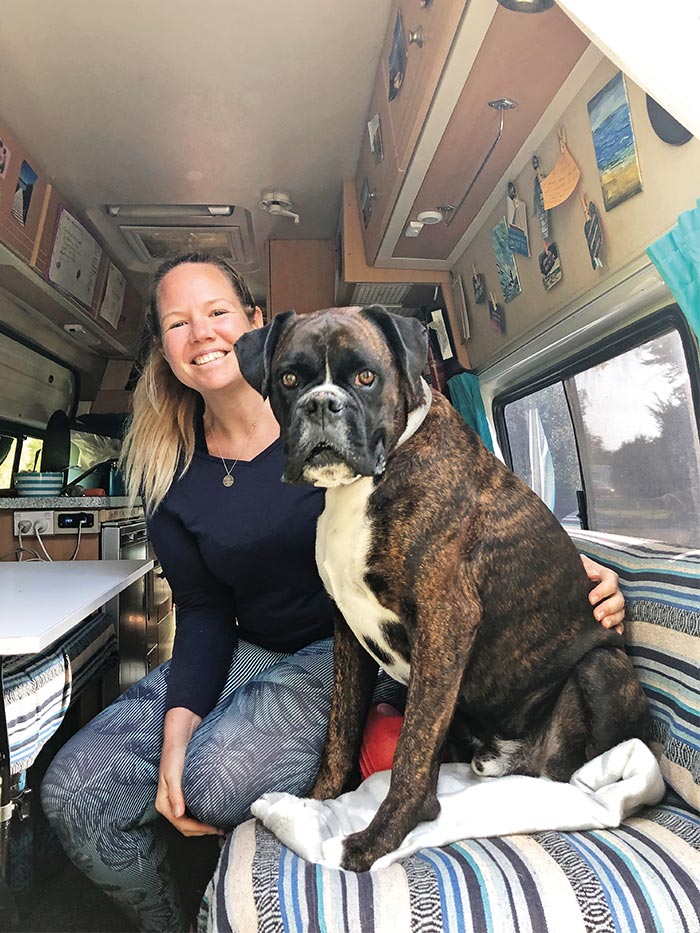
Pet etiquette on campgrounds
So you’ve overcome all the hurdles. Your pet loves travelling (or at least doesn’t hate it), and you found a place to stay that allows pets. To make sure you, your pet and your camp neighbours have an enjoyable stay, there are a few things to keep in mind. Make sure your pet doesn’t roam around other people’s campsites. Either keep them on a leash or in a fenced area.
Remember that not everyone loves pets, and some people are even afraid of them (especially dogs). So make sure your pet doesn’t get too close to anyone who might not be comfortable with that.
This should go without saying, but ensure you pick up after your pet. And this includes all pets, not just dogs. If your pet is known to cry or bark when left alone, minimise the time you’re away and do so when the noise is less likely to bother people (during the day rather than early in the morning or the evenings).
Also, it might be worth occasionally asking camp neighbours if they heard anything while you’re away. Your pet might be barking or crying a lot without you being aware of it. Some campgrounds ask pets to be kept out of certain common areas like the kitchen and lounge. Make sure you check the rules and stick to them.
Pets can make the best travel partners
Travelling with pets is not without its challenges, but it can be oh-so rewarding. Pets are great for company, and dogs often help you meet new people, as dog owners generally have lots to talk about right away.
If you ease your pet into it and then use common sense and follow the rules while on the road, nothing should get in the way of having a great time on the road with your furbabies.
More resources
The AA has put together this handy guide of the best places to stay and things to do when travelling with pets! Check out aa.co.nz/travel/free-travel-guides/ travelling-with-pets/
For NZMCA members, the mobile app is a great way to find campgrounds that are pet friendly, and the WikiCamps app also allows filtering results for dog friendly.
For dog owners, the mobile app Paw Planet is an excellent resource for finding dog walks, groomers and much more.
Are your pets on the NZ companion animal register?
Most people know about the importance of microchipping their pets. But did you know that sometimes vets only add the details to their own databases or the local council’s (for dogs)? If your pet goes missing and ends up with an SPCA or emergency vet in another region, they might not be able to access that database and, therefore, won’t be able to identify you as the owner.
Before you go travelling with your pets, make sure they are registered on the New Zealand Companion Animal Register (NZCAR). And make sure to keep your information on the register up to date, so you can be contacted.
It’s also worth pointing out that you can chip and register all sorts of animals, including birds, bunnies and more. So it’s not just for cats and dogs.

